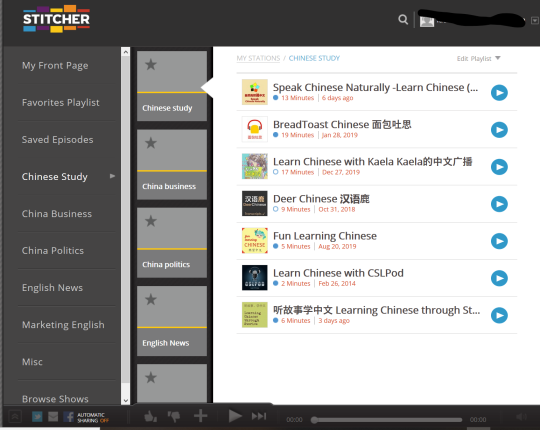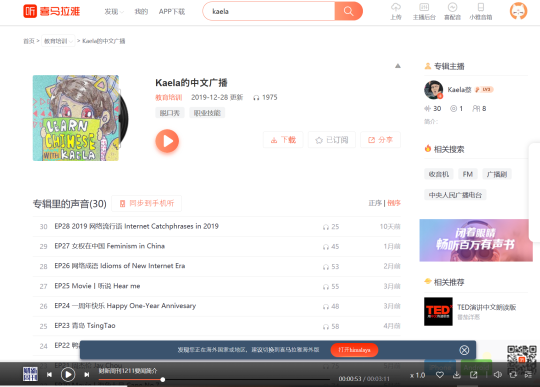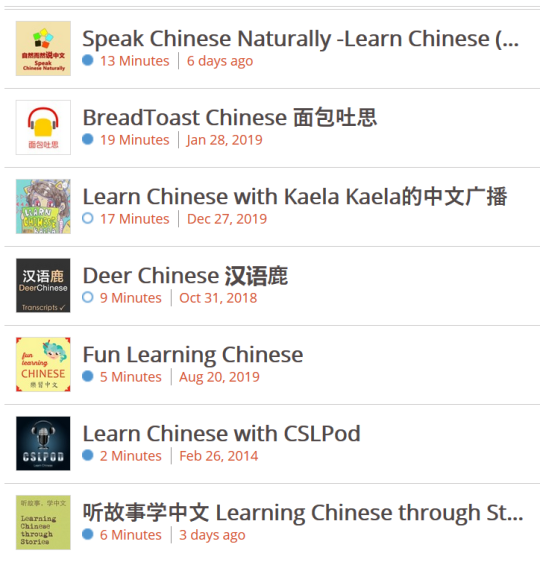#language studyblr
The Most Satisfying Feeling I Get from Learning Chinese
One of the most satisfying feelings I’ve experienced in learning Chinese is the feeling I get after hearing a new word and just *understanding* it. This isn’t that hard when reading (and that’s why we love 汉字), but when it comes to listening, it’s a whole different story. So the moments when I’ve heard a new word and intuitively known what 汉字 it consists of plus its meaning of have made me feel so accomplished. Over time I’ve jotted down some of these words, and I thought they would make a fun post.
- 迷失 míshī - to lose (one’s bearings) / to get lost
I was able to understand this word thanks to knowing words like 迷路, 迷茫, 失去, and 消失. I first remember identifying this word in Escape Plan’s song 夜空中最亮的星.- 旅途 lǚtú - journey / trip
I know a lot of words with 旅 like 旅游, 旅行, and 旅程, and I was also familiar with 途 via 路途 and 前途. So 旅途 was very easy for me to understand.- 心愿 xīnyuàn - cherished desire / dream / craving / wish / aspiration
心愿 is similar in meaning to 愿望 and 意愿, which I already knew. I believe I first heard this word in the song 有点甜 by 汪苏泷 and BY2.- 高傲 gāo'ào - arrogant / haughty / proud
I heard this word in the song 寻宝 by 沈以诚. I’ve listened to this song many times, and one day it just clicked! It’s all thanks to the similar words 骄傲 and 傲慢.- 安稳 ānwěn - smooth and steady
There are so many words with 安 like 安定 and 平安. I also know some 稳 words, such as 稳定 and 平稳. So I was able to put two and two together for 安稳.- 还原 huányuán - to restore to the original state / to reconstruct (an event)
The meaning of 还 here is very familiar from 还给 and 还清. Also, I know a lot of words with 原: 原来, 原本, 原始, 原先.- 选拔 xuǎnbá - to select the best
There are so many 选 words I see all the time like 精选, 选举, and 选择. I also know 拔 from 拔苗助长 and 自拔, so I was able to piece together the overall meaning of 选拔.- 解压 jiěyā - to relieve stress
I’ve already learned the word 缓解 which is related in meaning. Also, I’ve learned 施压 (or 施加压力), which is basically the opposite of 解压.- 感人 gǎnrén - touching / moving
I think this word is pretty easy to put together if you know similar words like 感染, 感动, and 动人.- 认输 rènshū - to concede / to admit defeat
I distinctly remember hearing this word in the Tanya Chua song 救生圈. I think I was able to understand it thanks to knowing that 认 can mean to admit like in the words 承认 and 公认.Here’s to many more of these satisfying moments in 2022!
Since making this post, I’ve been taking note of other instances. Below are 15 more words I was able to get from hearing alone.
- 离散 lísàn - (of family members) separated from one another / scattered about / dispersed
Of course, I know many words with 离, such as 离开 and 脱离. I also know some words containing 散, like 分散 and 散发. So it’s not a big leap to figure out what 离散 means. - 星体 xīngtǐ - celestial body (planet, satellite etc)
I was able to guess the meaning of 星体 because I am already familiar with 星球, which has a very similar meaning. I know it from Star Wars, aka 星球大战! But 星体 is from the EXO-C version of History. - 堆积 duījī - to pile up / to heap / accumulation
I basically understand 堆积 as 堆满 plus 累积. These are two words which I’ve learned previously. - 魅惑 mèihuò - to entice / to charm
Here’s another example where I know two similar words that I can essentially “combine” to get 魅惑. The words I already knew are 魅力 and 诱惑. - 插播 chābō - to interrupt (a radio or TV program) with a commercial insert, breaking news etc / to put a call on hold
I know 播 from words like 广播 and 播放. I also know 插 primarily from the expression 插一句. And thanks to the context (I heard 插播 used while watching a Chinese TV show), I was able to put two and two together. - 杂乱 záluàn - in a mess / in a jumble / chaotic
乱 is such a common character, I see it all the time. As for 杂, I know the word 嘈杂, and my brain seemed to think that was somehow similar, and I guess I was right? There aren’t many characters pronounced za after all. - 掩埋 yǎnmái - to bury
埋 is a 多音字, and I know the mái reading from the word 埋葬. I don’t know 掩 as well, but I’ve encountered the word 掩盖, so I was able to guess that the yan I was hearing was probably 掩. - 期盼 qīpàn - hope and expectation / to anticipate / to look forward to / to await expectantly
期盼 is very similar to the words 期望 and 盼望. I hear 期望 all the time. 盼望 is not a word I encounter as often, but I’m familiar enough with it. - 任一 rènyī - any / either
Don’t quote me on this, but I understand 任一 as essentially meaning 任何一个. They at least seem to be interchangeable in the contexts I’ve heard 任一 in so far. I either heard it in 青春有你3 or 创造营2021, I can’t remember. - 见证 jiànzhèng - to be witness to / witness / evidence
I already knew 证据, meaning proof or evidence, and I was vaguely aware of 证 being used in other words having to do with evidence and witnessing. - 打散 dǎsàn - to scatter / to break sth up / to beat (an egg)
Not gonna lie, I wouldn’t have guessed the beat an egg meaning, but I was able to approximate the other meaning(s). There are so many words starting with 打, so it’s a familiar structure. - 支撑 zhīchēng - to prop up / to support / strut / brace
If you watch the 创造营 series, you have heard the words 支持 and 撑腰 about five million times: party girl之道 姐妹为你撑腰~ 支撑 is very similar in meaning. - 自律 zìlǜ - self-discipline / self-regulation / autonomy (ethics) / autonomic (physiology)
I kinda know the word 纪律, meaning discipline. I think being familiar with how 自 is used in words like 自卫, 自学, etc. helped as well. - 方位 fāngwèi - direction / points of the compass / bearing / position
I think I heard this word in a song, but I can’t remember what song at the moment. I connected it to the words 方向 and 位置. And 百科 defines 方位 as 方向位置, so I was spot on! - 停歇 tíngxiē - to stop for a rest
I know many words containing 停, including 停止, 停留, and 暂停. I don’t think I actually know many words with 歇, but I was aware of its dictionary definition for some reason. Must have looked it up at some point.
Too many of these are from survival shows…I guess that shows that I am learning from them!
Source:https://lilidoescriticallanguages.com/2018/12/13/two-ways-to-track-your-language-learning-progress/

Unfortunately for language students, language learning is not at all straight forward or linear. In fact, there is very little in your language journey that you share with another language learner. Yes, you could both be learning Spanish, but your language study processes could be drastically different. In addition, when you first start learning, there’s a lot of grey area around what is the best material for you, how long you should be studying per day, how much material to learn, and what goals to set. You may have bought a fancy new language learning planner and have no idea what to put in it! It can be so overwhelming that it can drive away self-learners within weeks or days!
Never fear! I’m not here to scare you (because I ain’t good at it). Instead, i’m here to learn how to learn Korean, Spanish, French, Italian, etc as efficiently as possible and provide study tips for you!
Why should you create language learning goals?
- There is no teacher, so you need to decide what you want to learn and by when
- Keeps you organized
- Keeps you motivated
- Helps you tell whether or not you are improving
- Helps you become more efficient with your time
- You’ll learn faster
You MUST set goals as a self-study language learner. Period. How to do so however, can be the struggle. So here I lay out two major ways to track your language learning to insure faster progress! Here we goooo!!
Hey guys so I REALLY want to find more language study, travel and general study Tumblrs and bloggers so please comment down below with a link to your Tumblr, blog, and/or other social media link so I can follow you and create a Masterlist of blogs for my readers here on Tumblr and on my blog!

Note: Hello, language learners! Just want to first apologize for a very late post! A lot has been going on since my move from China and it has been a doozy. Excuses aside, here is a fresh of the press post for your language learning needs.
Grammar Is a Nightmare
Grammar is always a nightmare for language learners. It doesn’t matter what language you’re learning, grammar is simply not always a basket of roses. It’s actually never a bucket of roses and the sooner you accept that,the better whole language learning process will go. Why is grammar such a nightmare for those of you who are bright eyed bushy tailed and new to language learning? Here’s a list:
- Because there are ‘rules’ to grammar, but there are ALWAYS exceptions.
- Sometimes the grammar itself makes no sense at all when explained in your native language
- You often forget them right after
- They may have specific usages that you must know of in order to avoid sounding like a plebe
- There are a million and get more and more complex as you progress
What Is Grammar
Stop your scrolling! This is important!! I’m not going to explain the complex intricacies of the concept of grammar or even try to simplify it because if you speak a language, any language, you know what grammar is. HOWEVER, it is important to remember as you study grammar is that it is the written expression of how a group of people understand and synthesize the world around them. It is also how you learn more about the culture of the language you are learning. So take care to learn grammar thoroughly.
So how do you get through this total nightmare with your sanity intact? Fortunately for you, I’ve been studying languages for ten years and can tell you EXACTLY what to do. So before you resume or begin studying, here is my recommended step by step guide to studying grammar.

“Everything is so hard! I just wanted to be an astronaut!” – A wise man (probably)
Learning a language isn’t supposed to be easy. It’s a living and breathing method of communication that isn’t always perfectly logical. In other words, it’s a HOT MESS and you’re going to have to learn your way through the dense and confusing jungles of someone else’s language. So naturally, you will reach roadblocks and will deal with things that will make you want to quit life and go back to bed. It’s natural! It’s life!
If you are a huge bump in your language learning journey, don’t panic. Don’t panic!! You being stuck is not a reflection upon you or your capabilities. Let me say that again. YOU BEING STUCK IS NOT A REFLECTION UPON YOU OR YOUR CAPABILITIES. It is a reflection of how the world works and how sucky it can be to learn languages.
While learning Chinese, Japanese, and Korean, I faced so many bumps in the road. So many. So many…. *clinches fist and closes eyes dramatically*. But I got through and so can you. In the steps I outline what you can do if you’re feeling stuck in your language learning or if you’ve reached a language learning plateau how to move forward. (So chill out on the “feeling in a rut” quotes from Pinterest cause they won’t help).
Remember Why You Started
This is super basic and you’ve probably heard it a million times, so I won’t linger on this tip. If you feel like giving up, just make a list of all the reasons you started learning this language in the first place. If you have no specific reasons, make some right now. Do some research and see what benefits your language(s) grant you! This will kick your butt into gear again, because now you remember the goal you’re chasing after and you’ll wanna reach it. Cause who doesn’t love reaching goals!?
Don’t Rely On Motivation
Motivation is so great for getting started on something, but once you’ve actually started to do something, you will find that your motivation often wains and all you’re left with is procrastination and guilt. You can’t rely on being motivated to do things everyday. You can try to motivate yourself each and everyday, but that is ineffecient because it takes up precious time and energy. Instead, build up your discipline or your ability to do things even if you don’t want to. Wouldn’t that be sick wicked awesome if you could consistently get things done even if you don’t want to!? That’s what discipline can do for you! The only way to grow it, is to practice doing it over and over till you build the muscle. Beautiful things take time and when you give it that time, you will see amazing results.
Pinpoint EXACTLY What the Problem Is
If you are feeling stuck, you need to try to pinpoint EXACTLY what the problem is. Are you having trouble reading, writing, formulating sentences, listening to natural speed? Pinpoint EXACTLY where the problem lies and then go deeper than THAT to see what is causing the problem. It is important to know exactly what is causing the problems in your studies, writing them down and then brainstorming the best way FOR YOU to address those problem areas. I CANNOT STRESS ENOUGH HOW IMPORTANT THIS IS.
For example, in my Korean studies I faced a HUGE issue. I could NOT formulate sentences to save my life or even my dog’s life! I could perfectly understand sentences, but I couldn’t make a single one. So I identified that I had trouble speaking. Then I identified that it was sentence formation. Then I needed to figure out why. So I threw myself into an immersive environment and realized it was because I was feeling overwhelmed by the grammar and was learning the material the wrong way.
Change Your Approach
Once you have identified the problem, you can begin brainstorming creative ways to deal with each and every problem
For example, in my Korean studies I could NOT formulate sentences! So I reviewed making basic sentences then adding complicated parts to them. I studied that grammar inside and out so that I knew EXACTLY what each word meant and how it contributed to the sentence to create it’s meaning.
I also realized that Koreans formulate sentences so bizarrely different from English so I needed to learn DIRECTLY from native speakers more often. In other words, I needed to shadow them. Then I was able to take sentences I learned to use them and modify them with my deep knowledge of the grammar.
Ask Someone For Help
Last but certainly not least, ask someone for help. It could be a teacher, a coach, another language learner (like myself) or a native speaker. Ask them to assess your abilities and help you determine what’s going wrong in your language studies. There is no book, blog or video that can supplement a human person’s personal interaction so look to others to help you where you are stuck and you will never be disappointed!
You can join language communities in:
Facebook,
Tumblr (you can ask me questions directly on my Tumblr page)
Instagram (Every week I hold a Q&A in Instagram Live)
Reddit (r/languagelearning)
iTalki
Don’t forget to follow me on Instagram|Facebook|Twitter|Pinterest
JLPT N4 Grammar - 始める(はじめる)
Are you using it right??
In this episode we take a look at the JLPT N4 grammar ‘V(stem)はじめる’. So, you started studying Japanese 3 years ago but just how do you tell people about it?
————-
Welcome to Benkyogo!
In our ぶんぽうご Real Japanese Grammar series, Nani and Mani are deep diving into the textbook grammar required for the JLPT, throwing out the stuff you’ll never use, and teaching you how to speak authentically whilst expressing your own personality.
⭕️ You WILL:
- Understand grammar in real life context- Be told when and where to forget the BS - Get to listen to 2 random people free-talking about Japanese grammar
❌ You WON’T:
- Sound boring when talking to your Japanese friends - Say anything rude to your Japanese boss - Speak like you’re fresh outta your favourite anime
We don’t claim to be experts, we’re just 2 Japanese speakers (one native, one second language) chatting about the DO’s and DON’T’s of Japanese grammar in the 21st century. Keep up, textbooks!!
————-
Check out https://benkyogo.co.uk/ for detailed hints, tips and resources to self-study Japanese.
⛩Check out our store at https://www.etsy.com/shop/benkyogo
JLPT N5 Grammar - 上手(じょうず)
Are you using it right??
Find out how to use 上手 and talk about what you’re good at without sounding like an ass.
Welcome to Benkyogo!
————-
In our ぶんぽうご Real Japanese Grammar series, Nani and Mani are deep diving into the textbook grammar required for the JLPT, throwing out the stuff you’ll never use, and teaching you how to speak authentically whilst expressing your own personality.
⭕️ You WILL:
- Understand grammar in real life context- Be told when and where to forget the BS
- Get to listen to 2 random people free-talking about Japanese grammar
❌ You WON’T:
- Sound boring when talking to your Japanese friends
- Say anything rude to your Japanese boss
- Speak like you’re fresh outta your favourite anime
We don’t claim to be experts, we’re just 2 Japanese speakers (one native, one second language) chatting about the DO’s and DON’T’s of Japanese grammar in the 21st century. Keep up, textbooks!!
————-
Check out https://benkyogo.co.uk/ for detailed hints, tips and resources to self-study Japanese.
⛩Check out our store at https://www.etsy.com/shop/benkyogo
Due to the long school closures in Japan, the publisher of the famous kid’s educational manga 日本の歴史(nihon no rekishi, History of Japan) has made all 24 volumes available to read for free online until August 31st, 2020!
Check out the manga for free via this link! You can also read the press release here.
Nihon no rekishi is essentially set of history books - they introduce children to Japanese history from past to present. The books are aimed at children - so plenty of easy-to-understand scenarios and furigana abound!
Be sure to check out a few volumes before they’re all gone!
- - - - - - - - - - - - - - - - - - - - - -
⛩ Visit Benkyogo.co.uk for more ways to learn Japanese
Benkyogo Store: https://www.etsy.com/uk/shop/Benkyogo
Post link
Podcasts are simply the best way to squeeze in study time into busy schedules. Doing any sport, doing groceries, walking to/from school and work, extra time can be squeezed in (I always think back to the analogy with the stones, pebbles, sand and water in a cup, remember that post by Hacking Chinese?).
Below is some Intermediate to advanced appropriate listening material. If you have any suggestions don’t hesitate to contact me!
By the way, I am thinking of creating an Instagram account, is that anything you are interested in? Let me know!!
Podcast software/Apps:
Stitcher, Spotify and Ximalaya all have mobile apps and desktop versions for easy syncing.



Podcast Shows:
Ximalaya Podcasts:
- 青春逗[this show is presented by two 海归 (Chinese returnees, i.e. two Chinese who have lived abroad and come back to China), therefore they sometimes mix English words within the podcast. It is a contempary topic discussion podcast, spoken in natural language between the two presenters and sometimes a third guest] https://www.ximalaya.com/shishang/18796952/
- Linda讲故事 [naturally spoken language, one person retelling a story, natural and unscripted] https://www.ximalaya.com/qinggan/29392148/
- 健康生活100问 [has a question about nutrition and it answers the question in 3-5 minute short episodes, for example ‘is MSG really bad for health?’, 'which is healthier, cow milk or soy milk?’] https://www.ximalaya.com/jiankang/18734760/
- 故事FM [each episode has a different person come to tell their story about some kind of topic, such as being abused, quitting a 'top school’, and other stories that tell lives of very ordinary people but presents a picture of lives of ordinary chinese people with a story to tell. It’s also spoken in natural, unscripted language with a host] https://www.ximalaya.com/toutiao/7878702/
- 失眠小姐[Short 3-5 minute 'life advice’ to soft background music] https://www.ximalaya.com/qinggan/292190/
- 唐诗三百首 [Learn the 300 Tang Poems] https://www.ximalaya.com/ertong/16479532/
- Kaela的中文广播 Learn Chinese with Kaela [a naturally spoken podcast presented by Kaela, transcripts for the show found at https://gaerdan.wordpress.com/ https://www.ximalaya.com/jiaoyu/16634873/
Stitcher Podcasts:
Simply search the below podcasts in your podcast app

Misc Podcast Websites:
These podcasts you can access through the podcast website (the ones with *s are ones I have used and are very good, its worth spending time on the website, you can download the MP3s to your phone)
o https://www.slow-chinese.com/podcast/*
o http://justlearnchinese.com/mini-novels/
o https://mandarinbean.com/category/advanced/
o http://justlearnchinese.com/category/chinese-short-stories/
Do you have anymore? Please share in the comments!
Attention langblrs (especially Japanese), like this so I can check out ur page pls! (*´꒳`*)

